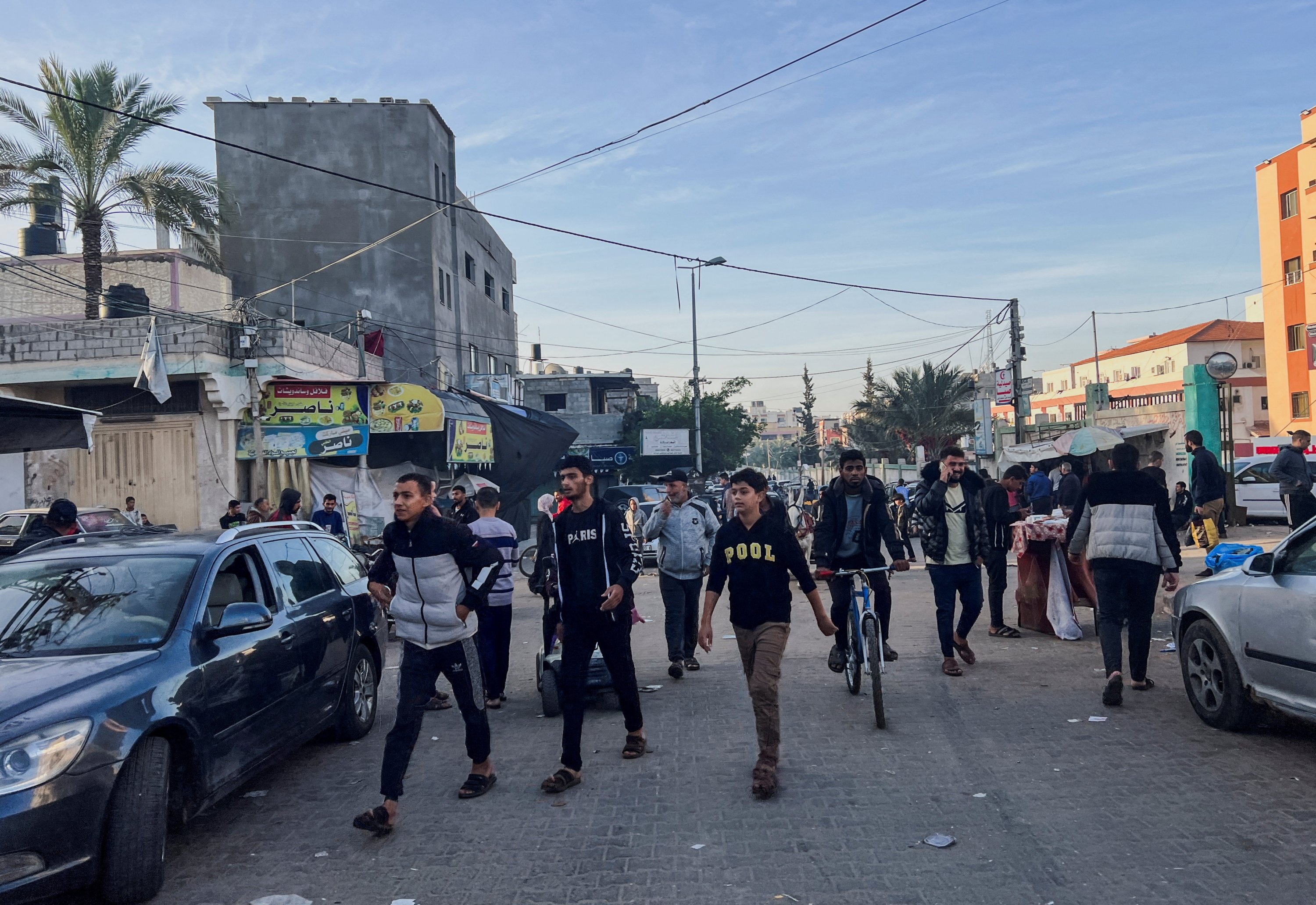© Turkuvaz Haberleşme ve Yayıncılık 2026
A four-day cease-fire in the Palestine-Israel conflict began Friday, marking the first significant break in the seven-week war that has resulted in the loss of thousands of lives.
Hostages are slated for release in exchange for prisoners as part of this truce.
Starting at 7:00 a.m., the pause was set to silence guns and stop bombings in the conflict.
Later on Friday, 13 hostages held in Gaza are expected to be freed, followed by an undefined number of Palestinian prisoners from Israeli jails, according to Qatari mediators.
Over the next four days, at least 50 hostages are expected to be released, leaving an estimated 190 in the hands of Palestinian groups.
Meanwhile, 150 Palestinian prisoners are expected to be released.
For Gaza's two million-plus residents, the deal spells a respite from weeks of sustained Israeli bombardment.

The territory's Hamas government says the war has so far killed about 15,000 people and displaced countless more.
The exact number of casualties is impossible to independently confirm, but it is clear that for many Palestinian and Israeli families, the pause in violence has already come too late.
"The living here are the ones who are dead," Fida Zayed, a Gazan whose 20-year-old son Udai was killed in a recent airstrike, told Agence France-Presse (AFP).
"The last thing he said to me was that he was waiting for the truce on Friday," she told AFP. "He asked me to prepare him a feast of rice and chicken."
"I hope me and my children die here so we don't have to mourn each other."
Qatari officials said the "first batch" of 13 hostages released would be women and children from the same families.
Teams of Israeli trauma experts and medics await them, along with specially trained soldiers who, according to guidelines, will promise to keep them safe and will carry a child's favorite food item, be it pizza or chicken schnitzel.
An Egyptian security source told AFP that Israeli security officials, International Red Cross-Red Crescent staff, and an Egyptian team would deploy to Rafah, on the Egypt-Gaza border, to receive the hostages, who will then be flown to Israel.
The office of Israeli Prime Minister Benjamin Netanyahu said it had received "a first list of names" of those due to be released and been in contact with the families. It did not specify who was on the list.
"We've already been on an emotional roller coaster for 47 days, and today is no different," said Eyal Kalderon, a cousin of Ofer Kalderon, who is among those held captive in Gaza.
Safe environment
Palestinian prisoners held in Israeli jails will also be released on Friday, Qatari foreign ministry spokesperson Majed Al Ansari said, adding that a list of names had been approved.
The agreement entailed a "complete ceasefire with no attacks from the air or the ground" and the skies clear of drones to "allow for the hostage release to happen in a safe environment," Ansari said.
Israel has published a list comprising the names of a total of 300 Palestinians who could be released should the truce outlive the initial four-day period.
Among them are 33 women and 267 children and youths aged 19 and under. The list also includes 49 Hamas members.
The armed wing of Hamas agreed to the truce deal, which is also intended to provide aid to Gazans struggling to survive with shortages of food, water, and fuel.
It said three Palestinian prisoners would be released for each one of the hostages.
Palestinian prisoners will be released from three jails in Israel and the occupied West Bank, then taken to the Ofer military camp on buses, an Israeli official told AFP on condition of anonymity, adding that they were expected to be freed in the evening.
Most are from the West Bank, but five are from the Gaza Strip.
Governments around the world have welcomed the agreement, with some expressing hope it will lead to a lasting end to the war.
"This cannot be just a pause before the massacre starts all over again," Riyad Mansour, Palestinian ambassador to the United Nations, told the Security Council.
Israeli officials, however, say the truce will be only temporary.
"We are not ending the war. We will continue until we are victorious," Israel's chief of staff, Lieutenant General Herzi Halevi, told troops he visited in Gaza.
Hours ahead of the expected pause, fighting raged.
Anti-rocket alarms sounded in an Israeli kibbutz near the Gaza border, and explosions were heard, and heavy gray clouds hovered over northern Gaza, much of which has been reduced to rubble.
Gaza health ministry official Munir al-Bursh told AFP that Israeli soldiers had raided the Indonesian Hospital in northern Gaza, though Israel did not immediately comment on any operation at the facility.
Israel has repeatedly said that hospitals have been used by Hamas to cloak underground command-and-control facilities, though Hamas and medical staff refute the claims.
In Gaza's largest refugee camp Jabalia, a Palestinian doctor said at least 27 people had been killed and 93 wounded Thursday in a UN-run school where thousands of displaced civilians were sheltering.
On Israel's northern border, the Iran-backed group Hezbollah said it had stepped up its attacks from south Lebanon, where Israeli bombardments killed seven of its members, including members of an elite unit.
Since the Palestine-Israel conflict began, deadly exchanges across the border have killed 109 people in Lebanon, most of them Hezbollah members, and nine people in Israel, most of them soldiers, raising fears of a broader conflict.
